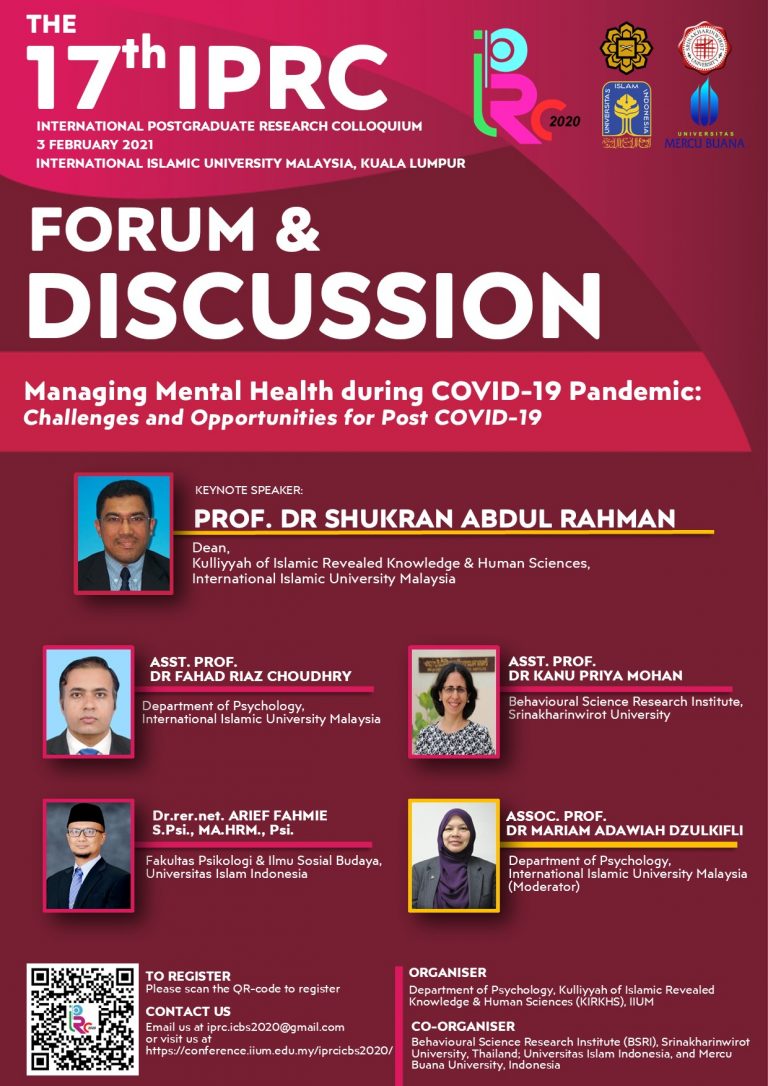By Aqilah Alya
GOMBAK, 4 February 2021: Arising from the COVID-19 pandemic that has not only affected the people in terms of socio-economic life but also their psychosocial perspective, a group of scholars, specifically the behavioural and social scientists, have come together to contribute towards managing psychosocial aspects of an individual and the community.
This issue was discussed at the 17th International Postgraduate Research Colloquium (IPRC) on Wednesday (3 February), held virtually for the time by the Department of Psychology, Kulliyyah of Islamic Revealed Knowledge and Human Sciences (KIRKHS), IIUM.
In his keynote address titled œMobilising Social and Behavioural Scientists in Managing Psychosocial Issues During COVID-19 Pandemic, the Dean of the Kulliyyah, Prof. Dr. Shukran Abd Rahman, explained how behavioural and social scientists could contribute in managing the psychosocial of an individual and community during the pandemic especially in IIUM.
He said among their contributions would be in the areas of psychosocial support team, improving job performance of the staff, managing university’s online teaching and learning, assisting the community in dealing with the pandemic, and giving advice pertaining to precautionary measures in dealing with the pandemic from religious perspective.
“Various measures that have been developed based on the four levels of interventions – human process, human resources, techno-structural, and strategic interventions – would help in making your contributions,” the Dean said.
According to Dr. Shukran, the human process intervention helps build a personal approach with involvement of staff, teachers and students, while the human resources intervention helps to strengthen their ability to deal with psychosocial matters, both socially and institutionally.
He further said that the techno-structural intervention contributes to the mission, institutional, strategic and operating processes transition, systemic and constructive environment creation, and policy design of socialisation, while the strategic intervention contributes to designing a strategy at a systemic level by strong synergies between agencies and third parties.
The Dean later officially launched the colloquium.
Head of Department of Psychology, KIRKHS, Asst. Prof. Dr. Nazariah Sharie Janon delivered her opening remarks while the ceremony was officiated by Assoc. Prof. Dr. Dusadee Intraprasert from Srinakharinwirot University, Thailand, who is also the Director of Behavioural Science Research Institute. ***
